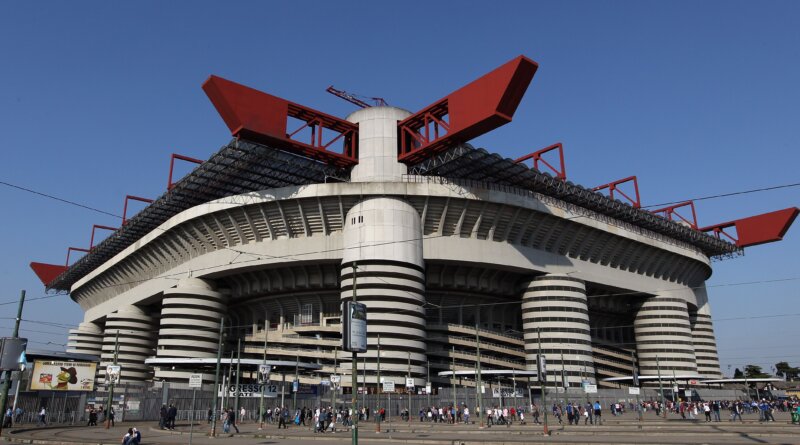San Siro Sale Sparks Bid-Rigging Probe and Public Outcry
San Siro sale, the landmark €197 million transaction transferring ownership of Milan’s iconic stadium to Inter and AC Milan, has ignited a major controversy just as it promised a new era for Italian football.
San Siro Sale Moves Milan Clubs Toward Modernization
The €197 million sale of the legendary San Siro Stadium and its surrounding land marks the end of nearly eight decades of municipal ownership, giving Inter and AC Milan control of the site. The historic deal is set to pave the way for a state-of-the-art arena, designed by Foster + Partners and MANICA Architecture, enabling both clubs to boost revenues and modernize facilities. These plans mirror ambitions across Europe for cutting-edge stadiums, with Foster + Partners also involved in Manchester United’s new project.
Bid-Rigging Investigation Clouds the San Siro Sale
Yet, San Siro sale celebrations were short-lived. Mere hours after the deed was signed, Milan prosecutors announced an official investigation into alleged bid-rigging during the sale process. The timing immediately drew sharp criticism from Inter president Beppe Marotta and Milan mayor Giuseppe Sala, who voiced concern over what they called “worrying timing” and the impact of Italian bureaucracy.
At the Football Business Forum, Marotta described the deal as historic, lamenting the immediate legal scrutiny: “The deed was signed at noon, and an hour later, the investigation opened. This is Italy.” Sala, speaking at a public event, defended the city’s transparency: “We did everything right, respecting the rules. The tender was open for the necessary time.”
Officials Defend Transparency and Public Interest
Support also came from Sports Minister Andrea Abodi, who emphasized that infrastructure projects like the San Siro sale are being managed transparently and in the public’s best interest. Abodi highlighted ongoing national projects tied to Euro 2032, calling Milan’s stadium transaction “a significant result beyond its economic impact, aiming to improve the city and the country.”
Concerns Over Tender Process and Excluded Bidders
The investigation centers on whether the tender process unfairly excluded alternative bidders, such as the Si Meazza Committee led by Claudio Trotta. Trotta claimed that “other consortiums were never given a fair chance,” prompting prosecutors to dig deeper into the short tender window. City officials continue to maintain the process was fully compliant with legal norms.
San Siro Sale: A Turning Point for Serie A
The San Siro sale represents more than a change of hands—it’s a pivotal moment for Serie A. Built in 1926 and expanded over time, the Stadio Giuseppe Meazza has hosted World Cups, Champions League finals, and countless derbies, serving as a symbol of Milanese pride. Under the deal, Inter and Milan will share the historic ground until their new 71,500-seat stadium is completed, expected before Euro 2032. The redevelopment plan includes green spaces, retail outlets, and leisure facilities, aiming to transform the area into a modern entertainment hub.
Financial Self-Sufficiency and Modern Football Demands
Club leaders believe that San Siro sale and new stadium investment are crucial for the future. Marotta called it “a step towards financial self-sufficiency,” highlighting that greater revenue streams are essential in today’s football landscape. Milan president Paolo Scaroni admitted the decision was tough due to fans’ nostalgia, remarking, “It was a difficult process, not only because of bureaucracy but also because people didn’t want a new stadium out of nostalgia.”
Challenges Ahead: Legal Uncertainty and Public Sentiment
Despite optimism, the San Siro sale faces hurdles. The investigation and compressed bidding timeline may delay construction, while public resistance to demolishing such an iconic venue remains strong. Nevertheless, city officials assert the process was transparent and legally sound.
The Future of Milan Football and Serie A
Both clubs plan to move forward with the stadium project, estimated at €1.2-1.5 billion, which will meet UEFA’s highest standards and generate year-round income. The new arena will honor San Siro’s legacy while embracing sustainability and fan-centric design. For more news on this and other football developments, visit for more news.
Opinion: Progress or Nostalgia?
The San Siro sale epitomizes the tension between progress and nostalgia in football. While modern infrastructure is key to global competitiveness, the emotional connection to historic stadiums remains powerful. The ongoing investigation is a test not just for legal transparency, but for how Italian football manages change in an increasingly commercialized sport.
Your global gateway to nonstop football coverage:
News Goal
Share this content:
